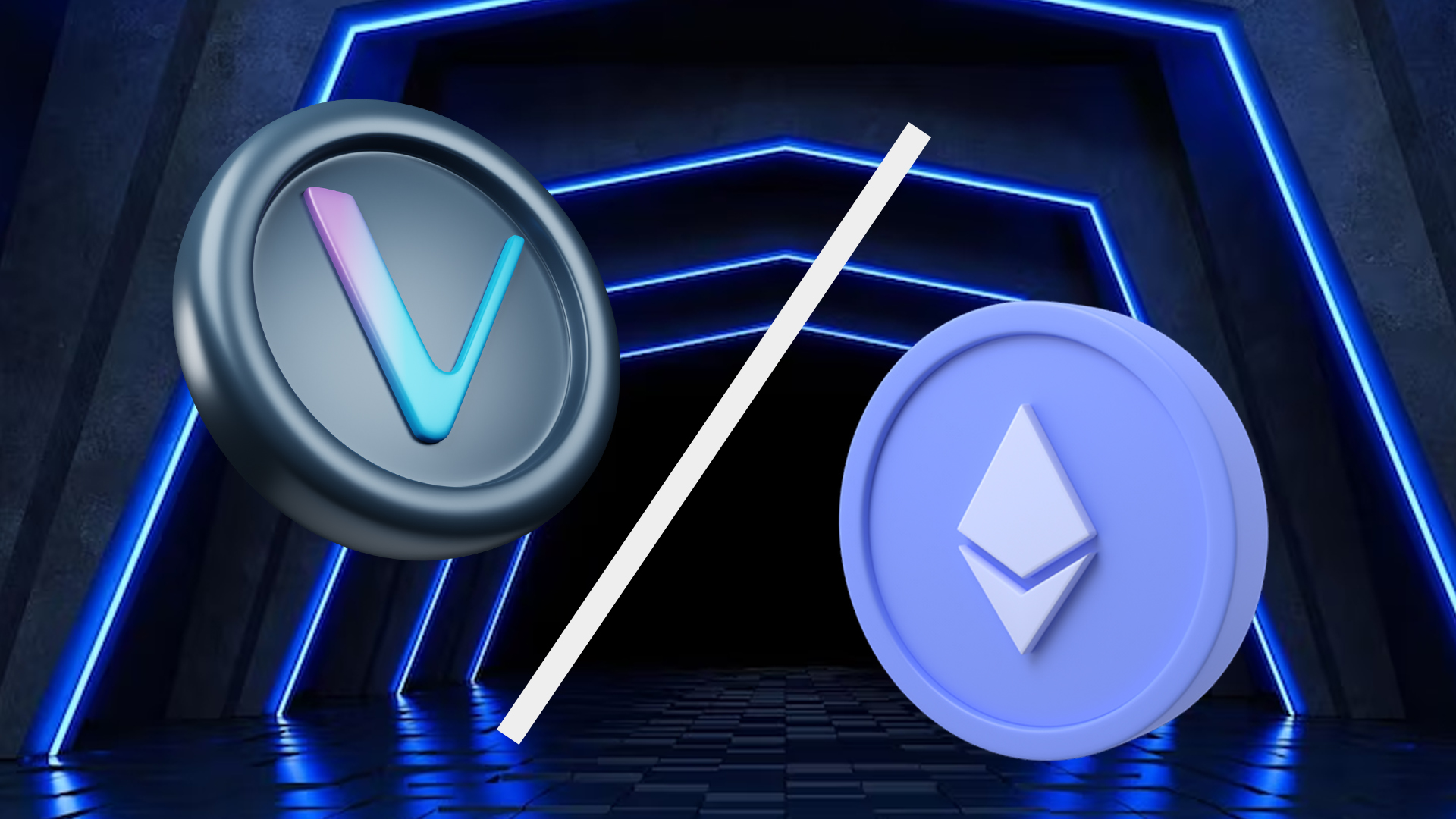- Ethereum, the second-largest cryptocurrency, is known for its smart contract functionality
- VeChain offers technology and scalability for supply chain management
- The decision between VeChain and Ethereum depends on the needs and goals
A blockchain platform called VeChain was developed to offer business solutions. VeChain seeks to assist companies in streamlining their processes and managing their supply chains better. VeChain features a two-token system—VET and VTHO—that cooperates to speed up platform transactions. VeChain has connections with numerous multinational corporations and is renowned for its sophisticated supply chain management skills.
Decentralized apps (dApps) were made possible by the creation of the blockchain platform Ethereum. According to market capitalization, Ethereum is the second-largest cryptocurrency and is well-known for its smart contract functionality. Ether (ETH), the native coin of Ethereum, is used to speed up platform transactions. There is a sizable developer community for Ethereum, which is used frequently in the creation of dApps.
Comparison of Ethereum vs VeChain
Technology and Scalability: VeChain is a technology and scalability that is specifically made for supply chain management and enterprise-level applications. The network is powered by a dual-token architecture that combines VeChain Token (VET) and VeThor Token (VTHO) for transaction execution. The Proof-of-Authority (PoA) consensus technique used by VeChain enables large transaction throughput and quick processing.
Ethereum is a general-purpose blockchain technology that makes it possible to create decentralized apps (DApps) and smart contracts. Although it is in the process of switching to a Proof-of-Stake (PoS) consensus method, it leverages the Ethereum Virtual Machine (EVM) and uses a Proof-of-Work (PoW) consensus mechanism. It has been difficult for Ethereum to scale, which causes network congestion when demand is high.
- Smart Contract Functionality
VeChain offers strong support for executing smart contracts and putting business logic on the blockchain. VeChain offers smart contract functionality. It provides the VeChain ToolChain, a collection of services and development tools designed specifically for business use cases. These tools make it easier to create and implement smart contracts and integrate them with already-existing business platforms.
The most popular platform for smart contracts, according to several experts. Solidity, the company’s programming language, is widely used and supported by the developer community. The substantial ecosystem of DeFi and DApp applications on Ethereum highlights the platform’s strength in supporting sophisticated smart contract functionality.
- Governance And Regulation
VeChain has built a governance model that involves several stakeholders, including economic master nodes and authority master nodes. This strategy enables sound decision-making and promotes adherence to legal obligations.
Decisions on Ethereum are determined by consensus among its stakeholders thanks to its decentralized governance mechanism. However, because of the platform’s decentralized structure, issues with governance and compliance with regulations have emerged.
- Adoption and Partnerships
VeChain has established itself as a pioneer in enterprise blockchain solutions through widespread adoption and strategic alliances with well-known businesses like PwC, Deloitte, and BMW. These alliances show a strong emphasis on integration with current supply chain networks and real-world usage.
In terms of acceptance and name recognition, Ethereum has a sizable lead. It features a robust ecosystem of DApps and protocols, and it has long been the preferred platform for raising money through initial coin offers (ICOs). However, because of its scalability concerns, some projects are now looking into alternative platforms.
Conclusion
Both VeChain and Ethereum offer distinctive advantages and work well for various commercial use cases. For businesses wishing to use blockchain for tracking and tracing items, VeChain is an appealing alternative because of its emphasis on supply chain management and its enterprise-oriented solutions. Ethereum is a flexible option for a variety of commercial applications thanks to its well-established smart contract capability and vast ecosystem. The decision between the two ultimately comes down to the particular needs and goals of the corporate solution being designed.

